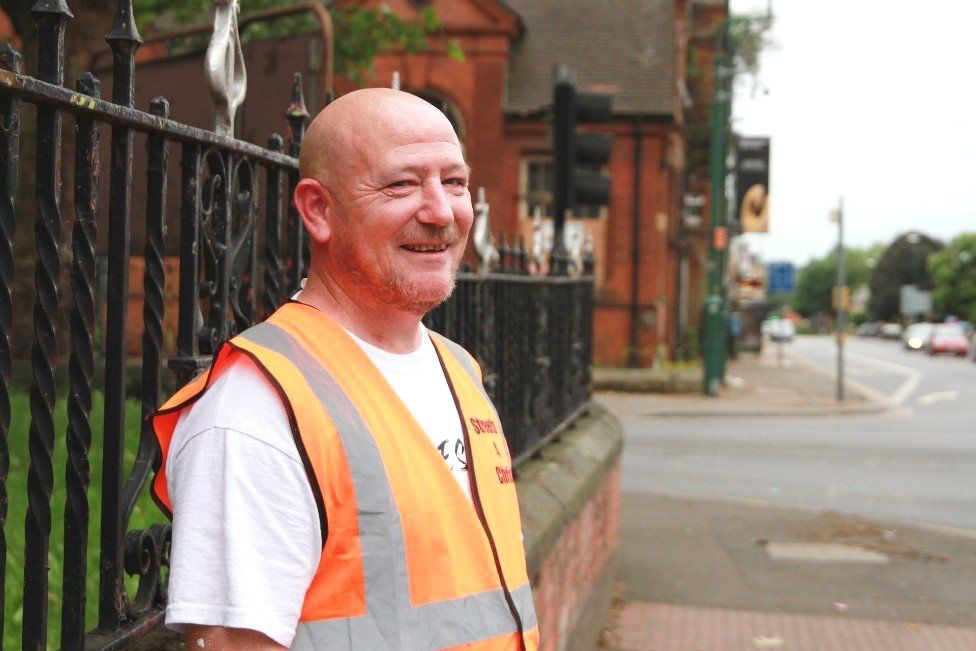
Living in a squat, addicted to heroin and caught in a seemingly unbreakable cycle of crime, Paul Traynor was trapped and destitute. Until one day, something happened that many would find unbelievable.
It was 02:00, and an emaciated man with blood-stained clothes was stumbling towards a nightclub near Tottenham's High Road, in London, seeking help.
In his back was a kebab knife, which had missed his heart by millimetres.
One of his lungs had collapsed. He was choking on his own blood. He was close to death.
Paul Traynor had been drunkenly walking home after a night at the pub.
He was around the corner from his house when three men jumped out of a car, surrounded him and stabbed him.
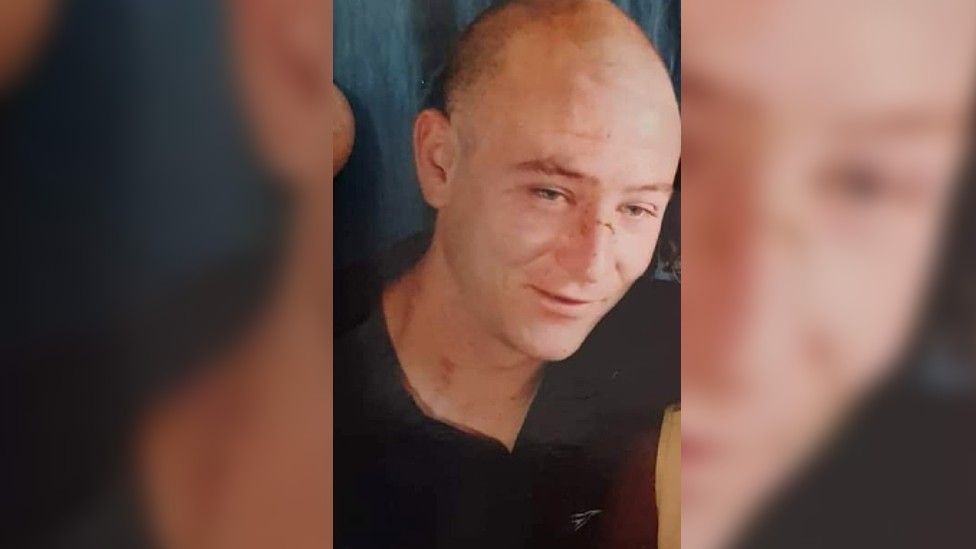
The attack was retaliation for a robbery Paul had committed on another gang member.
As he neared the nightclub, bouncers ran to his aid.
Somebody called an ambulance and he was rushed to hospital.
His doctors had seen many troubled young men like Paul wheeled on to their wards from a chaotic world of drugs and violence.
In Paul's case, after an 11-hour operation, he lived to fight another day.
"I should have died that night," he says.
"When I woke up three days later, the consultant said to me, 'Young man, you are a miracle. Please do something with the rest of your life'.
"And yet I still didn't listen. I went right back to everything I had been doing for another 13 years."

Paul, 48, from Nottingham, was a career criminal for 28 years.
He first become involved with a gang as a 10-year-old and says he got "deeper and deeper" into trouble with drug dealers.
He began funding his drug habit through crime.
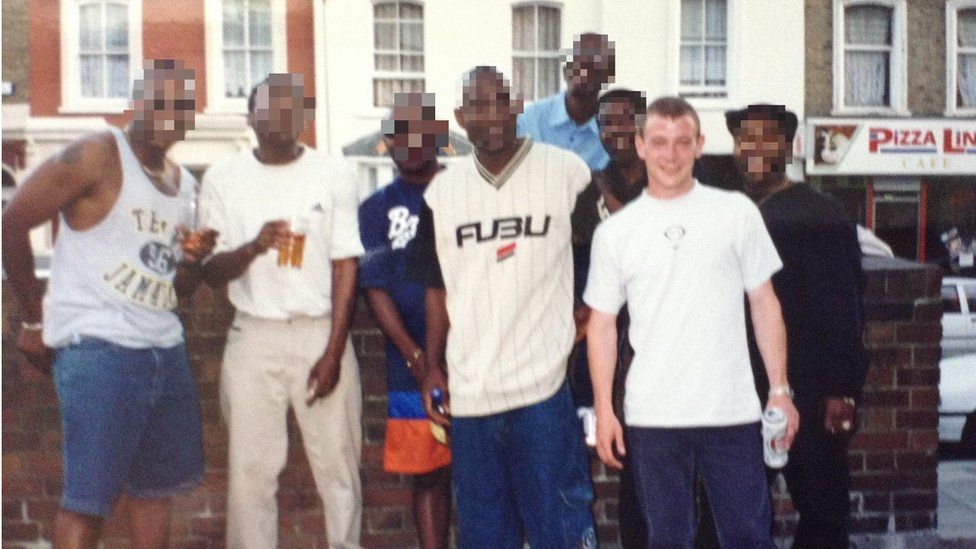
By the time he turned his back on the lifestyle, he had 41 criminal convictions for everything from theft and armed robbery to drug dealing and extortion, and had served several stints in prison.
"By [the age of] 10, I had been expelled from several primary schools and joined a notorious gang, smoking weed, drinking alcohol and doing petty crime. And it continued from there," he says.
"At the time I enjoyed the money it gave me - the cars, the designer clothing, the jewellery. But it always comes full circle and eventually I became broken and destitute."
Paul says he did "some truly awful stuff that will disgust people".
"I've been stabbed twice and shot in the arm, and those acts of violence are shocking, but I had done these things to other people as well," he says.
"I was an awful man. I walked with knives and carried guns and that was the culture. I don't like to glamorise that, but it was very crazy times.
"I carried that guilt around with me."

In 2003, Paul and his wife uprooted their family from London to Nottingham to escape the gangs he had grown up with.
"My wife had given me the ultimatum, and we also wanted our sons out of London. We didn't want them going down the same road as I did," he says.
"I didn't have the connections in Nottingham that I had in London. I could get clean and start again. But I lasted six months before I was back full circle, doing drugs again. Nothing really changed."
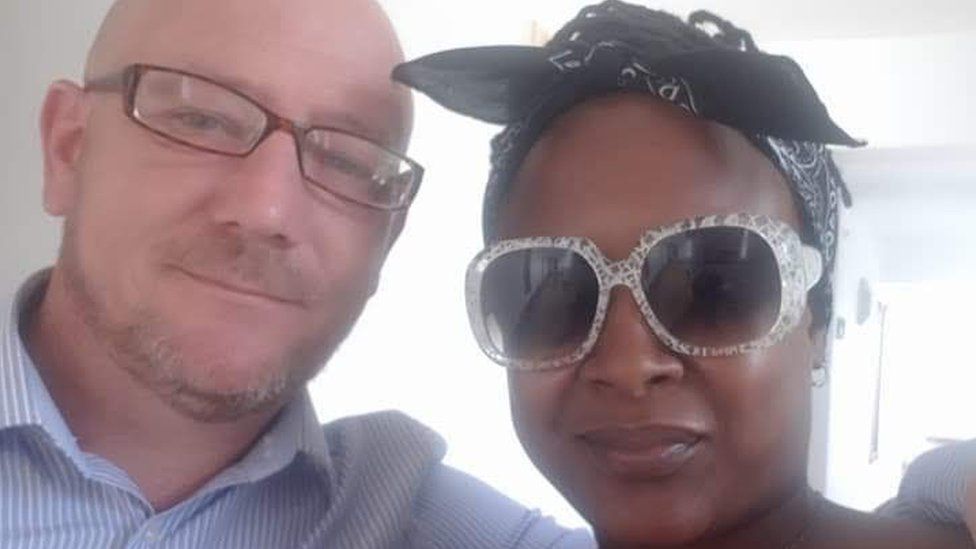
Then, a decade ago, something happened which Paul says transformed his life and mind-set forever.
Overnight he gave up the drugs and the crime and, within 48 hours, he was travelling back to Nottingham to make amends with his wife Minnie and their two sons.

Paul calls 1 February 2011 the "best day of the rest of [his] life". A day he will never forget.
He was homeless, living in a London squat, miles away from his family who had disowned him.
Rehab had failed, his heroin and cocaine addiction had taken over his life, and he had "hit rock bottom".
In this moment he says he felt broken and alone and contemplated taking his own life. He was desperate for help.
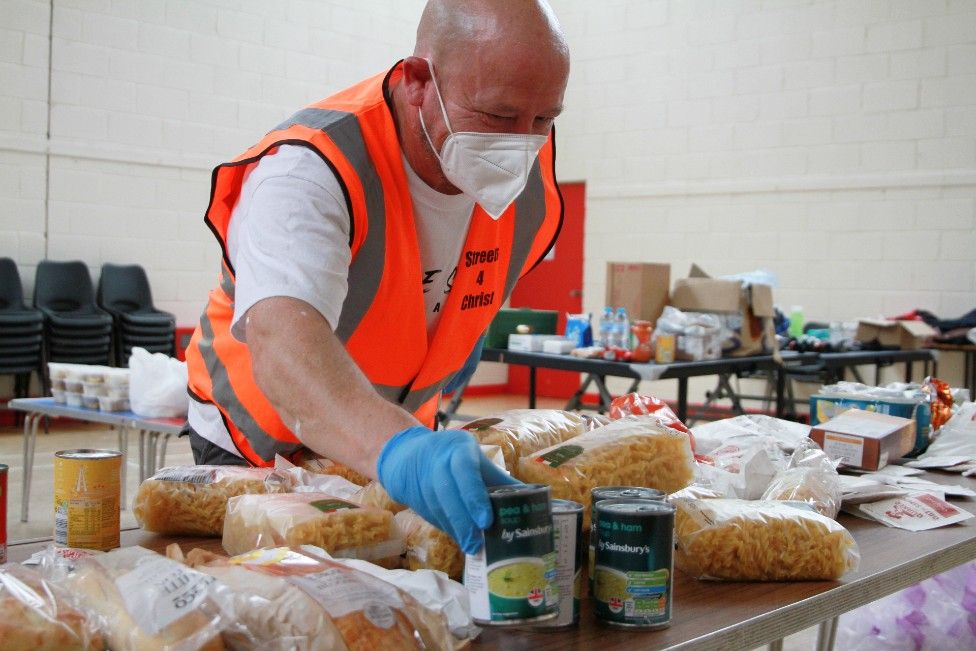
"I was so weighed down with the shame," he recalls.
"I had failed at life. I had failed my wife and kids, failed my siblings, and I couldn't live any more," he says.
He fell to his knees with tears streaming down my face.
"I cried out at the top of my voice. I was angry," he says. "I shouted 'God if you are real, please help me because I need you' and that was the turning point.
"What happened next is hard to describe - it was the most beautiful moment."
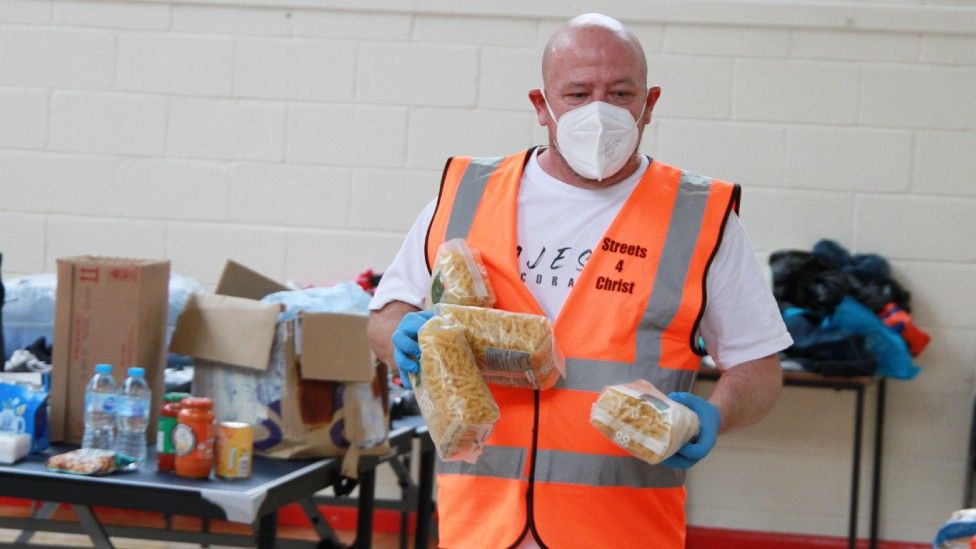
Paul says he felt someone else in the room with him. He believes it was God, giving him a sign.
"Even though I never grew up going to church, and I knew very little about God and his redemptions, I knew it was him in that room with me and I have never felt so great," he says.
He began screaming, singing and dancing.
"I had tried years of medication and rehab, but when I woke up the next day, I wasn't in withdrawal and I have not touched drugs again," he says. Things just started changing in my life and I have never been the same since."
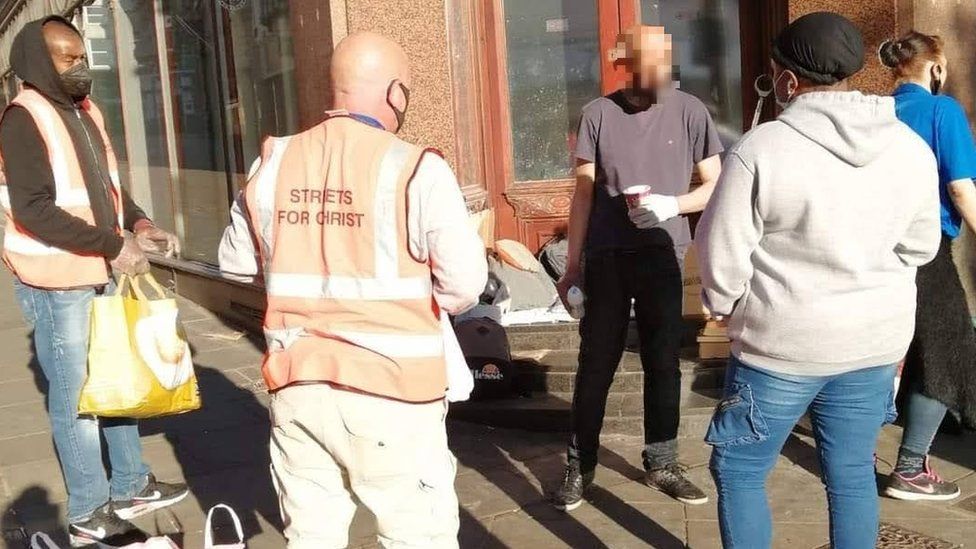
The next day, he made his way to Nottingham.
"I walked from Nottingham station to Bilborough and stood in my front garden," he says. "I hadn't been home for two years. It took some work but eventually [my wife] took me back."

Within weeks, Paul had made amends with his family and decided to use his new-found faith to help homeless people in Nottingham.
He began taking bags of sandwiches and hot drinks to those on the streets - people who, not so long ago, he had lived alongside.
"These guys knew me. We had shared that experience, so when I looked different and talked differently I could show them my life had changed and I wanted to help them too," he says.
"I was speaking to people who have the same issues I had, so I could empathise with them."
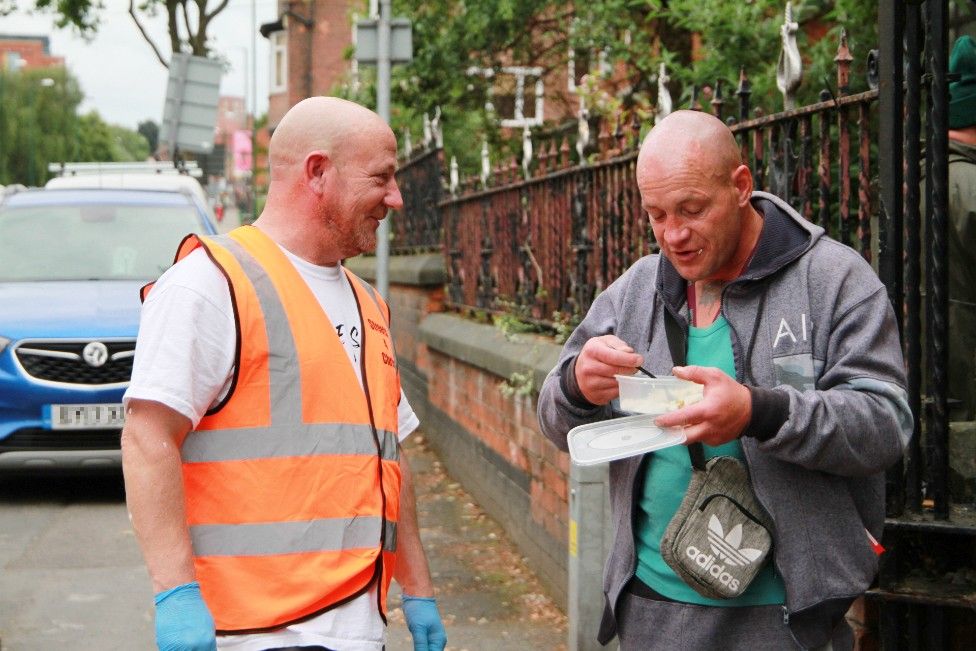
Within a year, with the help of Minnie, his work evolved into Streets 4 Christ, a charity the couple started to help the city's homeless, providing hot food, clothing and support to find housing and employment.
The couple have been married 20 years and say the charity is going from strength to strength.
Paul shares the stories of his past in schools, prisons and community churches to show how he changed his life in the hope of inspiring others.
"I'm not trying to make excuses for the way I have lived my life, but those first years shaped the person I went on to become," he says.
Pastor Russell Olding from The Haven Church, which donates items, says Paul's past gives him a better understanding of the people he is helping.
"It's a remarkable story," he says.
"To go from where he was to where he is now is just miraculous really.
"The work he is doing goes beyond compassion.
"He knows what it's like to be in that place, he knows the struggles and can connect with people in a real way without sounding like a do-gooder.
"Even for people in Christianity, his experience sounds incredible or unbelievable but Paul has continued to serve and have a heart for the people he serves."

Marc Trory, 48, calls himself one of Paul's success stories.
He was homeless and struggling with a gambling addiction when he started attending the Streets 4 Christ kitchen on Monday evenings.
"Paul shared his own personal story with me and that impacted me to become better than I was," he says.
"Over time my money management has got better so I have enough food to live on and I have things in place so I don't do negative things."
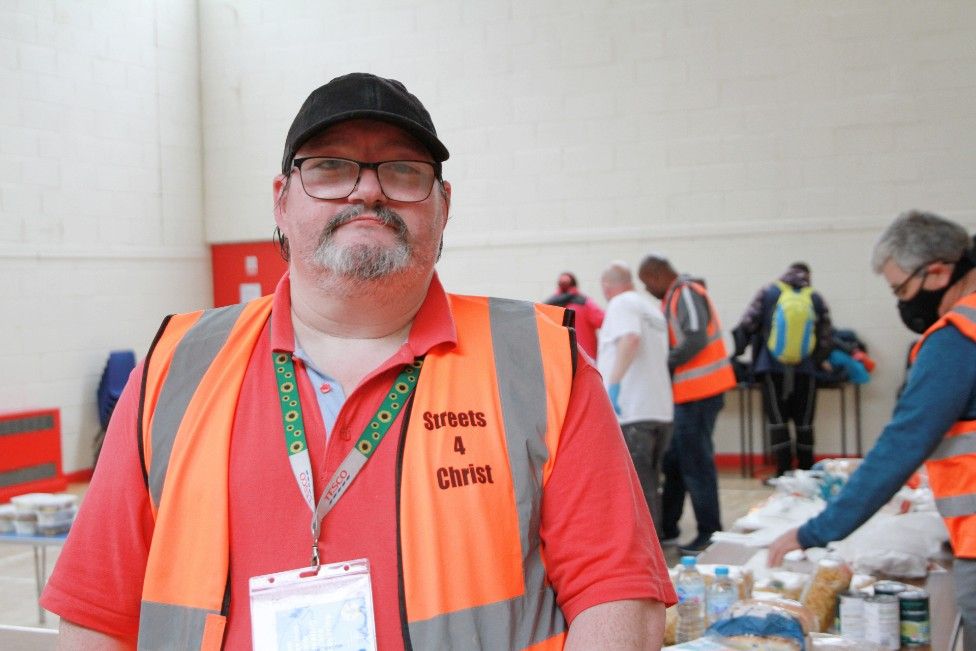
Now Marc is a regular volunteer at the kitchen, which has been operating as a takeaway service during the pandemic.
"I get lifted by helping others," he says.
"Like Paul, faith is something that's very important in my life and not being able to go to church in the pandemic was difficult, so instead I get that sort of pick-me-up by doing this every week."

As well as running his own painting and decorating firm, Paul is now an ordained minister.
He believes he has helped up to 200 people to get off the street permanently in the past decade but knows the "miracle moment" he experienced does not happen to everyone.
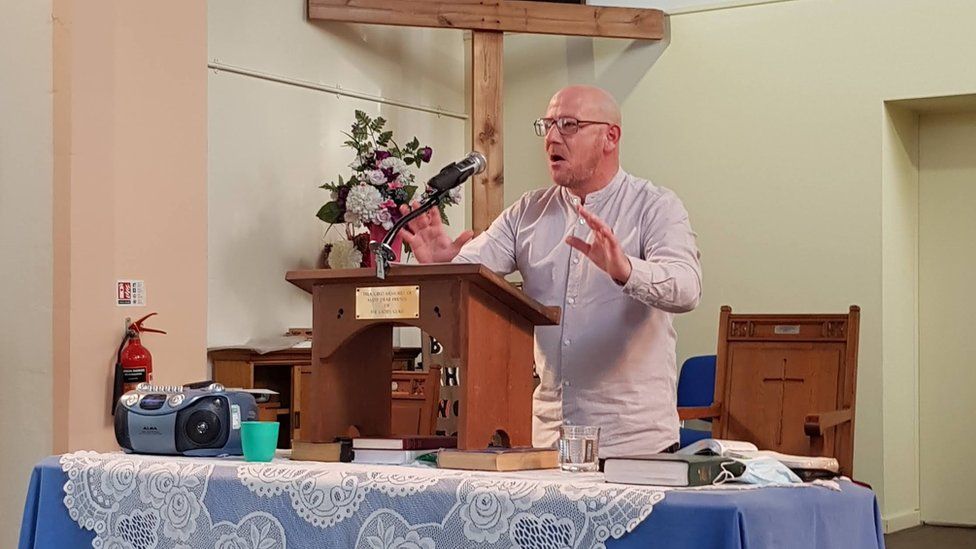
"There are so many people that have got housing and the support and then, within three months, they're back out on the street for a number of different reasons," he says.
"It can be so frustrating. But some people just aren't ready for it. They really need help from within themselves and it's not just about a roof over their heads.
"I would love for everyone to have the experience that I have had... and not everyone believes it. By the grace of God, when I look back now I was so lucky. He really wanted to keep me alive."
If you are affected by the issues in this article, help and support is available via BBC Action Line.

Follow BBC East Midlands on Facebook, Twitter, or Instagram. Send your story ideas to eastmidsnews@bbc.co.uk.
"crime" - Google News
August 02, 2021 at 06:35AM
https://ift.tt/3C81lfg
Nottingham church minister's journey from drugs and gang crime - BBC News
"crime" - Google News
https://ift.tt/37MG37k
https://ift.tt/2VTi5Ee
Bagikan Berita Ini














0 Response to "Nottingham church minister's journey from drugs and gang crime - BBC News"
Post a Comment